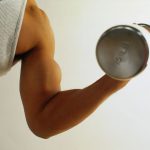
Juicing nutrient-rich green vegetables like kale, broccoli and spinach gives you a brew of many vitamins and minerals, all in just one cup. But green juices can have an overpowering flavor, so many people want to cut their “bite” with the natural sweetness of fruit and/or a bit of sweetener, such as plant-based stevia or a teaspoon of maple syrup or agave. Here’s how: If you have an overripe banana on your counter, toss it into the juicer with your greens and an apple for a juice that tastes like a sweet banana shake. Adding cherries, blueberries or blackberries will also mask the flavor of fresh greens while contributing plenty of antioxidants and other nutrients. If you’re a fan of spice, add a piece of peeled ginger root for extra kick. Do you crave chocolate? Juicing blueberries and cocoa powder along with greens is a delicious way to satisfy the urge. This recipe also calls for some water to give your juice volume, plus vanilla extract for richness. Finish it with a hint of sweetener and you have a chocolate drink that’s fit for any sweet tooth. Chocolate Juice 1 cup blueberries, fresh or frozen 1 teaspoon vanilla extract 1 tablespoon cocoa powder 2 cups baby spinach 1/2 cup water Sweetener or sugar substitute of your choice If using frozen berries, defrost before juicing. Place… read on >

















